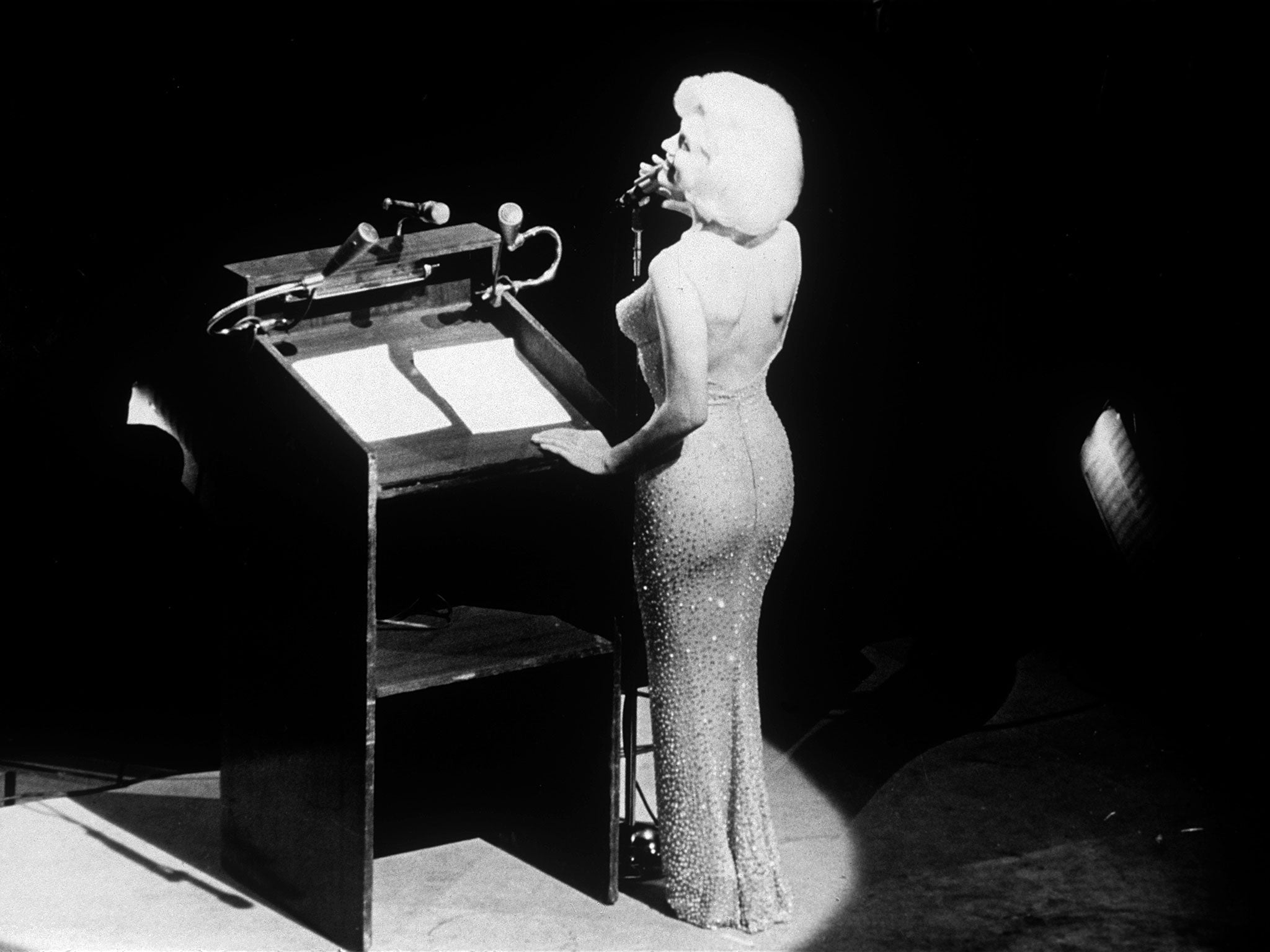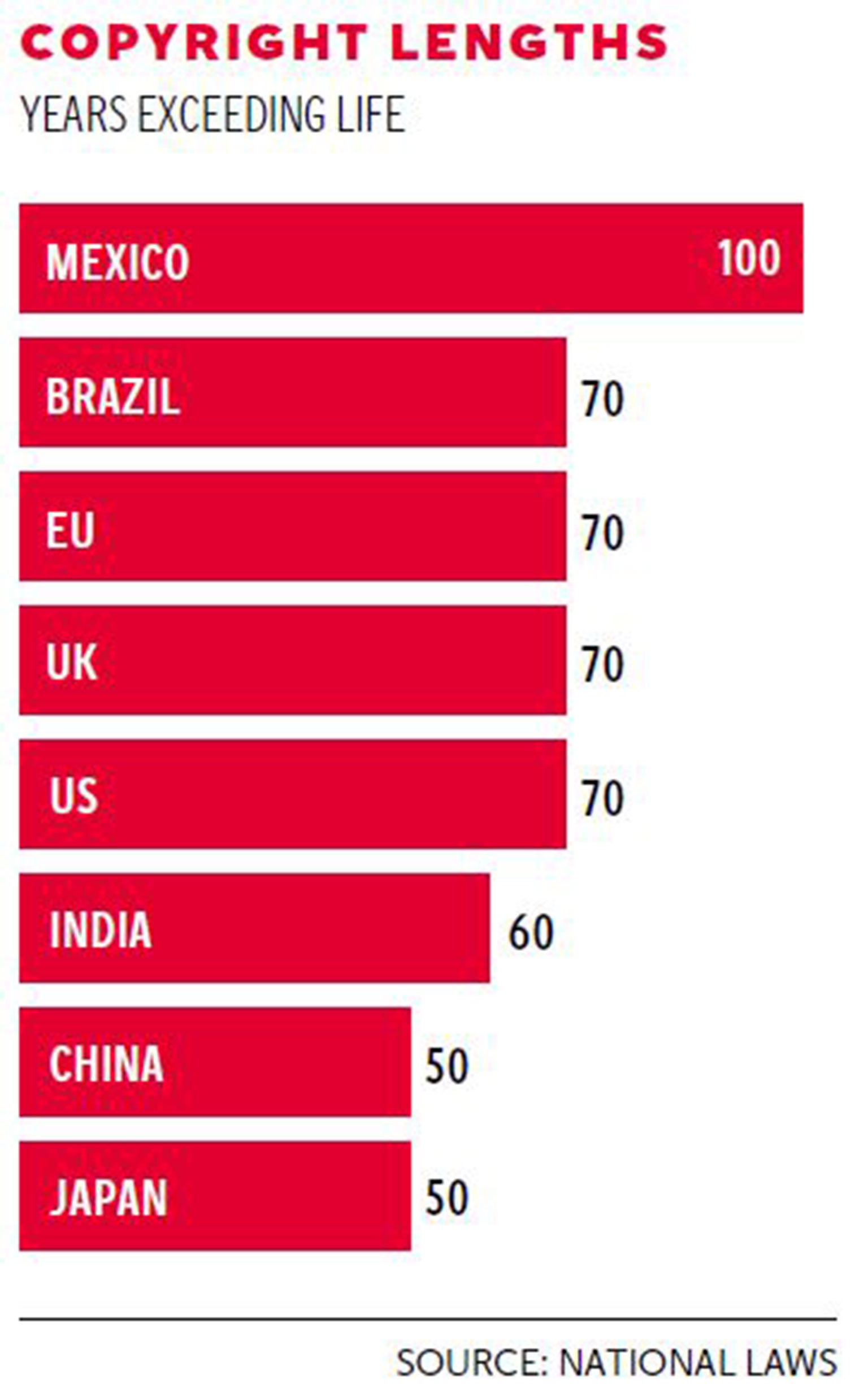Happy Birthday song copyright goes public: How one of history's most expensive birthday gifts was finally returned
After a protracted legal fight, the owners of the copyright to ‘Happy Birthday To You’ will no longer receive royalties every time the tune is sung in films or in public. But strict ownership laws for music remain, reports Hazel Sheffield

A yellowed page in a songbook almost 100 years old may have been the key to a copyright battle over the world’s most popular song.
The song in question is “Happy Birthday To You”, the most frequently sung song in the English language, according to Guinness World Records. Warner/Chappell, the global publishing arm of Warner Music Group, had reportedly been making more than $2m (£1.3m) a year in royalties by sending out letters whenever it discovered the song being used in films and public performances, such as Marilyn Monroe’s serenade to President John F Kennedy in 1962 at Madison Square Garden.
Warner/Chappell sent one such letter to a film-maker in New York, demanding $1,500 for her use of “Happy Birthday” in a film. Jennifer Nelson paid the fee and entered into a licensing agreement with Warner/Chappell in 2013. Then she filed a lawsuit to have the song declared in the public domain.
“Before I began my film-making career,” Ms. Nelson told The New York Times in 2013, “I never thought the song was owned by anyone. I thought it belonged to everyone.”
Now it does. A source close to the case confirmed that both parties had agreed to a settlement to end the lawsuit. The terms of the deal are still confidential, but if the settlement is approved by the court, the song will enter the public domain.
Ms Nelson’s case rested on a songbook dating from 1922 that contained an early version of the lyrics and the melody to “Happy Birthday”, printed under special permission of the Clayton F Summy Company.
Sisters Patty and Mildred Hill first wrote the song under the name “Good Morning To All” as a greeting to the kindergarten children they taught in Kentucky. It had the same melody as “Happy Birthday”, but the birthday lyrics weren’t recorded until the 1900s, when the complete song started to appear in films and singing telegrams.
It was only when the lyrics and melody of “Happy Birthday To You” as we know it featured in the Irving Berlin show As Thousands Cheer in 1933 that the Hill sisters registered copyright of the song as a birthday anthem with their publisher, the Summy Company.
This copyright would later end up in the hands of another publishing company, Birch Tree, which was acquired by Warner/Chappell in 1988 in a deal reported to be worth $25m.
Warner/Chappell, believing the renamed Summy-Birchard to be the sole owner of the song, had expected it to come out of copyright in 2030 after twice renewing it– as permitted under US law. In the UK, copyright for artists lasts for 70 years and cannot be renewed.
But the plaintiffs described the 1922 songbook as the “smoking gun”, because it showed that the sisters had published both the lyrics and the melody to “Happy Birthday” together before 1935, which, for technical reasons, could forfeit later copyright, lawyers told The New York Times.
Warner/Chappell argued that there was no prior copyright to be forfeited.

Following the settlement, Warner/Chappell told The Independent: “While we respectfully disagreed with the court’s decision, we are pleased to have now resolved this matter.”
The case relates to a glut of copyright lawsuits and broader shifts in the record industry, according to Matt Grimes, senior lecturer in music industries at Birmingham City University. “The industry has moved from one of creativity to an industry of copyright,” he said. “The only way the music industry can make money is by imposition of copyright, and that means taking people to court.”
One former lawyer for a big record label said that creativity and copyright have always existed hand in hand. “You cannot have copyright without creativity. Copyright affords the owner the exclusive right to benefit from the exploitation of the copyright work. A significant element of the benefit is monetary.”
The question is one of timing. Different rules apply to works created before and after 1978. When copyright terms expire, songs either enter the public domain, or the rights return to the songwriter.
“There’s a bit of a gold rush among artists and songwriters,” said Tahir Basheer, partner in digital media and music at the Sheridans law firm in London. Mr Basheer added that a lot more heritage songs and tracks are going through legal processes to see whether the rights will revert to the original songwriter.
James Sweeting, senior associate at the law firm Lewis Silkin, said that only some of the songs heard this Christmas will already be in the public domain. “The 12 Days of Christmas”, which was written around 1780, or “Deck the Halls”, which was written in the 1800s, are free to use. But others could cause trouble for families uploading renditions to YouTube.
“ ‘Rudolph the Red Nosed Reindeer’ and ‘Rockin’ Around the Christmas Tree’ were written by American songwriter Johnny Marks, who died in 1985. His estate may still be enjoying the royalties from those songs for many years yet,” Mr Sweeting said.
Join our commenting forum
Join thought-provoking conversations, follow other Independent readers and see their replies
Comments